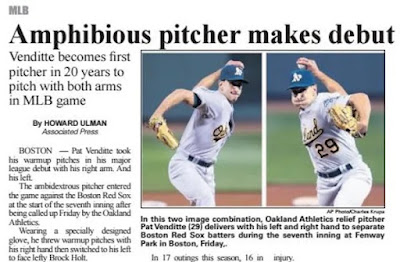Odd things I have posted on Facebook, episode 2,472:
I am going on the record now that there will be a hot blog post very soon about the word “thwarted”. You have been warned.
That was October 27. I guess the “very soon” part was not so accurate. Here’s what was burning me up:
Former Clarksville resident’s efforts to bring first public charter school to Howard thwarted for third time by school board, Ethan Ehrenhaft, Baltimore Sun
Let me explain. Thwart is a word that carries emotional baggage and value judgement. As such it might belong in an editorial piece, but not in a straight news piece. Take a look at the definition:
thwart, verb
past tense: thwarted; past participle: thwarted
prevent (someone) from accomplishing something.
"he never did anything to thwart his father"
oppose (a plan, attempt, or ambition) successfully.
"the government had been able to thwart all attempts by opposition leaders to form new
parties"
Similar: foil, frustrate, balk, stand in the way of, forestall, scotch
- - Dictionary Definitions from Oxford Languages
Using the word thwart to lead off this article sets up the reader to believe that the Howard County Board of Education is actively working to prevent the success of this particular venture. But, if you read the article itself, there is no evidence whatsoever that this is the case. In fact, quotes from Board Chair Vicky Cutroneo have a positive tone. It would be more accurate to say “Former Clarksville resident’s efforts to bring first public charter school to Howard fail for third time.”
We have requirements for public schools in Howard County. This venture has not yet met them after three appearances before the board. So far they have failed to present a complete and viable application. Did the editor want to avoid the negativity of the word “fail?” There are still a variety of ways to lead off that don’t inject opinion at the get-go.
- Public charter group appears before Board of Education
- Public charter group continues official application process
- Public charter group committed to improving their initiative
These are clearly clunky and could easily be improved by a professional journalist. But any of them is better than “thwarted” which brings to mind someone like Mr. Burns of the Simpsons, rubbing his hands together in glee as he destroys the dreams of well-meaning dogooders.
Ehrenhaft most likely did not write the title. I won’t hold him responsible. Whoever did needs a review in factual vs. opinion writing.
This one from The Daily Record bugged me as well.
Hogan highway project delayed, possibly dooming it with new governor, Bryan P. Sears, Daily Record
Can you spot the questionable word?
Yep, it’s “ doom.” Or, rather, “dooming.” There’s a whole lot of emotional baggage and value judgement here, too.
doom
noun: doom
death, destruction, or some other terrible fate.
"the aircraft was sent crashing to its doom in the water"
Similar: destruction downfall grim/terrible fate ruin ruination rack and ruin catastrophe
disaster extinction annihilation death end termination quietus
verb: doom; 3rd person present: dooms; past tense: doomed; past participle: doomed; gerund or present participle: dooming
condemn to certain destruction or death.
"fuel was spilling out of the damaged wing and the aircraft was doomed"
- - Dictionary Definitions from Oxford Languages
Am I the only person who took a dim view of doom here? The Daily Record newsletter used this sentence to introduce the article. I think it’s better than the current title of the article.
“Shaky future for Hogan highway project“
Again, it’s highly unlikely that Bryan Sears wrote the title. I don’t think journalists even have any veto power in these decisions.
Why does this matter? After all, these days we’re scrambling for any local news coverage at all. Why nitpick over word choice?
If language is not correct, then what is said is not what is meant, if
what is said is not what is meant, then what must be done remains undone.
- - Confucius
Using the kind of language that is meant to convey facts is part of what helps us distinguish reliable journalism from pieces meant to manipulate or distort the truth. As readers we look for the clues which set legitimate news apart from writing which is, for example, personality-driven and gossipy. We need to be able to trust media outlets like the Baltimore Sun or the Daily Record to know what words mean and use them accurately. Yes, it’s up to us to use our critical thinking skills. But there’s no reason for newspapers to make it any more difficult than it is already.
All that being said, I suggest that if you’re going to get a word wrong: go big.
Image of article by Howard Ulman, East Oregonian




Comments
Post a Comment